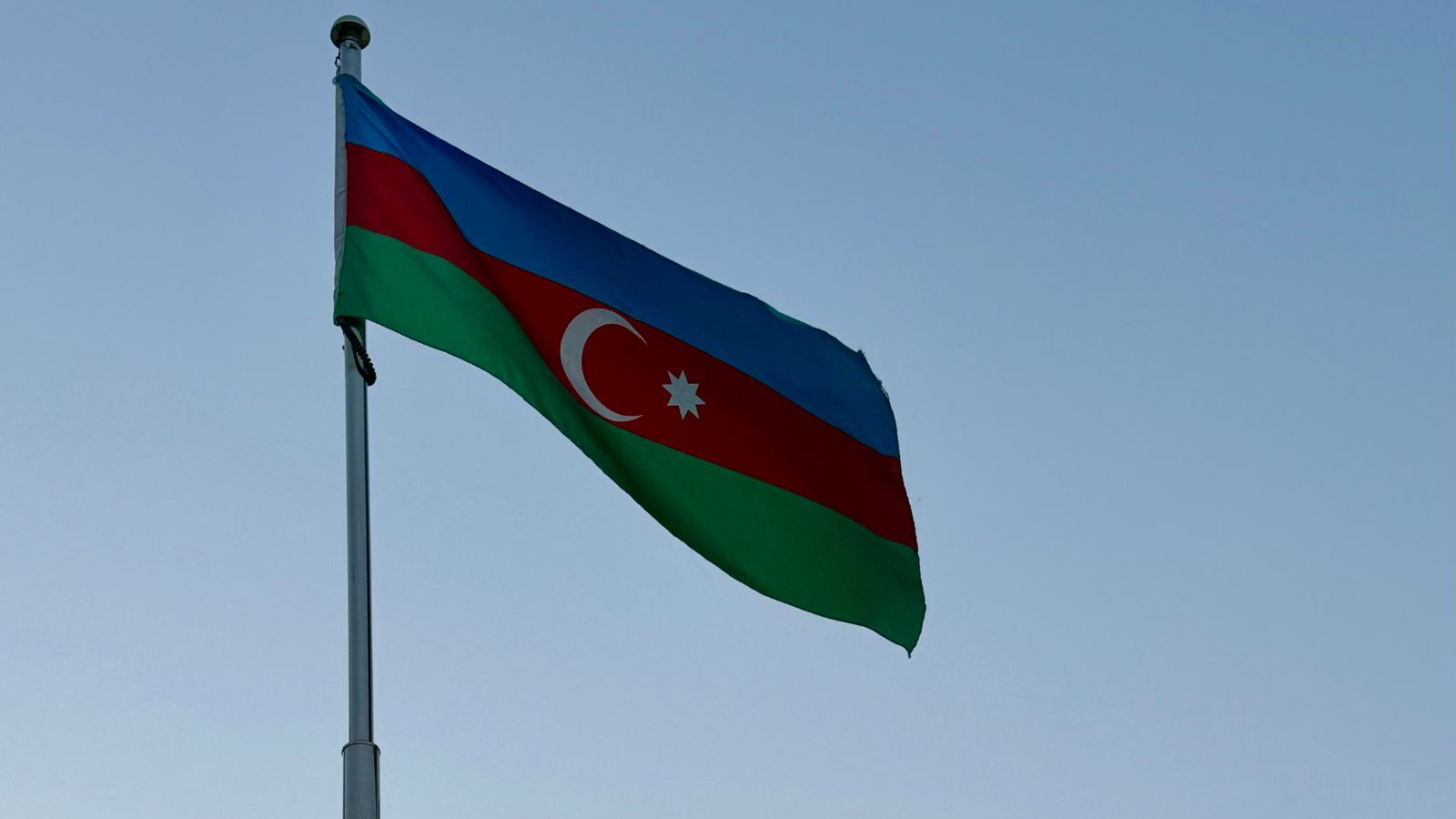Lessons from Azerbaijan’s constitutional evolution
Master of Public Policy alumna Shabnam Taghiyeva reflects on how Azerbaijan’s evolving constitutional framework continues to shape the country’s understanding of sovereignty.

As Azerbaijan marks 2025 as the “Year of Constitution and Sovereignty,” two milestones come together: thirty years since the adoption of the 1995 Constitution and five years since the restoration of full sovereignty.
This commemorative year invites reflection on how the idea of constitutional sovereignty – the principle that state legitimacy flows from a lawful constitutional order – has evolved for Azerbaijan and within an increasingly interconnected world.
After regaining independence in the early 1990s, Azerbaijan faced the immense task of establishing legal and institutional stability. The turbulence of that period revealed a simple truth: independence could endure only if grounded in law and capable institutions.
The 1995 Constitution, drafted under the leadership of Heydar Aliyev and adopted by national referendum, provided this foundation. It placed power in the people, affirmed the principles of democracy and the rule of law, and established the separation of powers that still anchors governance today.
By embedding sovereignty within a constitutional order – and aligning it with respect for international law – the document made independence not only a political reality but also a civic and legal commitment. It is a reminder that true sovereignty is not only defended at borders but exercised through accountable institutions and lawful governance.
Evolution of constitutional sovereignty: 1995–2025
Initially, the early years of independence were devoted to stability: creating institutions strong enough to serve citizens and ensuring that authority was exercised through law, not discretion. A key early milestone, the 1994 "Contract of the Century", showed how legal agreements could open the country to international investment while keeping control of its national resources – proof that economic partnership, when anchored in law, can strengthen sovereignty.
Subsequent constitutional amendments in 2002, 2009 and 2016 refined the balance of power and accountability mechanisms. These were not just technical adjustments – they showed that a constitution can remain stable yet flexible, evolving as society does.
More recently, the restoration of full territorial integrity reaffirmed the Constitution’s role as the guarantor of lawful governance and equality for all citizens. The extension of constitutional institutions – local government, the judiciary and public administration – across all regions reaffirmed that sovereignty is lived through effective, lawful governance.
Sovereignty and global governance
The principles of the United Nations Charter – sovereign equality, territorial integrity, and non-interference – remain the foundations of international order. For Azerbaijan, these values are woven into its Constitution, which affirms respect for international law and cooperation, showing that sovereignty and international obligation are not opposing forces but complementary ones.
By integrating international treaties into its domestic legal system, the Constitution recognises that legitimacy today depends as much on cooperation as it does on control. True sovereignty lies in the ability to act responsibly within interdependence.
These dynamics reflect a wider transformation often described as global constitutionalism: the spread of constitutional norms such as the rule of law, checks on power, and human rights protection beyond national borders. While there is no single global constitution, international and regional institutions increasingly form a kind of “proto-constitutional” framework that shapes how states justify their actions and share responsibility.
Azerbaijan’s foreign policy has evolved within this environment of shared rules. Its multi-vector diplomacy – balancing cooperation with Eastern and Western partners while preserving decision-making autonomy – reflects a pragmatic understanding of sovereignty. Active participation in bodies such as the United Nations, Council of Europe, Non-Aligned Movement and Organisation of Turkic States shows that engagement can strengthen, rather than diminish, independence.
From energy cooperation with the European Union to participation in regional connectivity projects like the Middle Corridor, Azerbaijan aligns national interests with lawful international engagement. In the modern era, sovereignty is less about isolation and more about the ability to uphold national interests through cooperation and legal accountability. For Azerbaijan, constitutional sovereignty continues to evolve as both a domestic framework for accountability and a compass for responsible engagement in an increasingly interdependent world. This evolving idea of lawful, adaptive sovereignty is now being tested in an entirely new domain: the digital age.
Constitutional frameworks in the digital age
Today constitutional legitimacy depends increasingly on a state’s ability to respond to borderless challenges – digital transformation, data governance and artificial intelligence among them. Influence now flows across global networks, private platforms and algorithmic systems. In this new landscape, constitutional principles like accountability and transparency must extend into spaces once far beyond the reach of public law.
Effective governance in this sphere requires agility and foresight. Laws and institutions must evolve as quickly as the technologies that reshape economies, communication and public life. For many developing countries, including Azerbaijan, this means building both human and institutional capacity to shape global digital norms rather than merely adapting to them.
Azerbaijan’s recent digital governance reforms show how constitutional sovereignty can adapt to technology without losing its legal core. Through its ASAN Xidmət model of e-government – recognised by the United Nations for advancing transparency and sustainable development – the country has demonstrated that digitalisation can enhance both efficiency and citizens’ rights. Broader initiatives focused on digital connectivity, such as the Digital Silk Way fibre reflect a strategic understanding that digital infrastructure is now inseparable from national resilience and independence.
From the foundations laid in 1995 to today’s efforts to govern in a digital era, Azerbaijan’s experience shows that sovereignty is not a static possession but a capacity to evolve responsibly. In a connected world, legitimacy is measured not only by adherence to law but by the ability to innovate within it, proving that the essence of constitutional sovereignty lies in governing wisely amid constant change.

